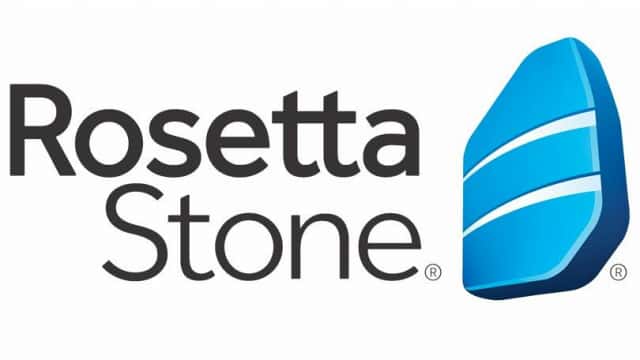Rosetta Stone Arabic

Summary
Rosetta Stone is one of the most well-known resources for learning languages. High levels of repetition and an absence of translations or explanations are hallmarks of the course. Rosetta Stone Arabic course could be most suitable for learners that don’t mind repetitive exercises and prefer to learn from pictures and context rather than translations and explanations. It’s probably not a good option for anyone wanting to learn non-Modern Standard Arabic, significantly improve their speaking or writing skills, or those looking for an engaging course.
The platform is a bit clunky on desktop, but the material is accurate and presented clearly; lesson mechanics are fairly intuitive.
Without much opportunity to build your own sentences, I don’t think you’ll reach a conversational level with any notable speed.
Rosetta Stone’s Lifetime Subscription ($199 on sale) is quite attractive if you like the Rosetta Stone Method. Shorter subscriptions are quite reasonable, too.
I Like
- Lessons progress naturally and logically
- Both audio and visual learning components
- The audio quality is very good
I Don’t Like
- Only offers Modern Standard Arabic
- No grammar explanations
- No writing practice
Price
A three-month subscription to one language is $35.97, which works out to be $11.99/month.
A year-long subscription to one course is $95.88, which is $7.99/month. Both of these subscriptions are automatically recurring.
Lifetime access to all Rosetta Stone language courses is available for $199.
ALR Readers Exclusive Holiday Deal!! Get the Lifetime Subscription for 25 languages for $179 (everywhere else it’s $199 right now!). See details on the website.
Rosetta Stone uses a dynamic immersion method to help you learn Arabic in a natural way.
The Rosetta Stone Arabic course contains 12 units focused on everyday situations like family life, shopping, or travel. Each unit consists of multiple-choice lessons that allow you to match images or say words to learn new vocabulary.
Older versions of the course contained different materials and cost much more than the app-based version of the Arabic course. You may still see older software for sale, so keep that in mind!
Overview of Rosetta Stone Arabic
With over thirty years of history, Rosetta Stone remains one of the best-known resources out there. Check out this review to decide if the Rosetta Stone Arabic course will work for you.
Pros of Rosetta Stone Arabic:
- TruAccent voice recognition software
- Both audio and visual learning components
Cons of Rosetta Stone Arabic:
- Only offers Modern Standard Arabic
- No grammar explanations
- No writing practice
Things to Consider Before Buying Rosetta Stone Arabic
Learning Arabic can take over two thousand hours of dedicated study for most English speakers. What makes Arabic so tough to learn?
Arabic Grammar
First, Arabic uses a different grammar structure than English. It has complex plural rules, uses different words based on whether a male or female is the subject of the sentence, and features tricky verb conjugations.
The Arabic Alphabet
Second, Arabic uses a different alphabet. This script, called Al-abjadiyah, is a special kind of alphabet containing just one vowel sound, as most Arabic words contain only consonants. Learning the 28 letters of the Arabic alphabet won’t take you too long, but learning to read words written right-to-left without vowels takes some serious work!
Which Arabic Dialect You Want to Learn
Finally, Arabic is a macro language containing multiple dialects. The official state version of Arabic is called Modern Standard Arabic. This is a formal version of the language used in courtrooms but not in real life. In contrast, over 60 million people speak Egyptian Arabic and other popular dialects include Gulf, Levantine, and Sudanese Arabic.
Because of the unique challenges of learning Arabic, you should look for a program that focuses on Arabic grammar and literacy skills. You will also want to find a course that teaches the specific Arabic dialect you need to learn.
Features and Benefits of Rosetta Stone Arabic
Take a look at the key features of Rosetta Stone’s Arabic program to decide if it works for you.
Modern Standard Arabic
One of the key things to note about the Rosetta Stone Arabic program is that it only offers Modern Standard Arabic. Modern Standard Arabic, or MSA, serves as the official state language for 22 countries. Learning this dialect may help you if you plan to work in an Arabic corporation or interact with an Arabic government.
That said, MSA will not help you communicate in everyday situations. The vocabulary and grammar of spoken Arabic dialects like Egyptian Arabic differ a great deal from the formal, stilted Arabic of MSA.
On top of this, Rosetta Stone uses the same scenarios of shopping and sightseeing to teach MSA vocabulary as it uses for all other languages. This doesn’t make sense, as you simply would not use formal MSA words and phrases in these informal settings!
Dynamic Immersion
One of the core elements of Rosetta Stone’s language learning methodology is called dynamic immersion. The course does not use any English at all. You won’t see an English translation of new vocabulary or any explanations of grammar.
Instead, you will immerse yourself fully in the look and sounds of Arabic words. In theory, this uses the same method an infant uses to learn his or her native tongue. You immerse yourself in the language and pick it up by building connections with what you already know.
In practice, this method only works with languages similar to your native tongue. You will find it difficult to understand why Arabic sentences use a totally different structure from English sentences just from seeing and hearing the words in Arabic!
Direct Speaking Software
One of the great features of Rosetta Stone’s Arabic course is its direct-speaking software called TruAccent. This allows you to practice speaking Arabic words and phrases into a microphone and receive feedback on your pronunciation.
Cost of Rosetta Stone Arabic
You can access Rosetta Stone’s Arabic course via the app for several different subscription rates. For a three-month subscription, you pay $11.99/month. For a full year, the rate falls to $7.99/month. And you can score a lifetime subscription for a one-time payment of $179.
Rosetta Stone also offers a free three-day trial for new customers.
Alternatives to Rosetta Stone Arabic
We strongly suggest you consider other Arabic language courses that provide a different focus and experience than Rosetta Stone Arabic.
Pimsleur Arabic App
Pimsleur’s app-based Arabic course uses spaced repetition and lots of grammar explanations in English to help you master basic Arabic.
- Option to choose either Egyptian, Eastern, or MSA dialects
- Uses direct speaking software
- Costs $20.95/month
If you like the idea of a language course that covers all the bases, give Pimsleur’s Arabic app a try!
StoryLearning Arabic Uncovered
Storylearning just launched its new Arabic Uncovered course, which uses an ongoing narrative to immerse you in beginner-level Arabic.
- Focus on grammar, literacy, and culture
- Offers MSA
- Costs $297
For an engaging approach to Arabic, preregister for Arabic Uncovered here!
ArabicPod101
ArabicPod101 features a library of podcast-style lessons on a huge range of topics.
- Audio-only course
- Dialects offered: MSA, Egyptian, and Moroccan
- Cost ranges from free to $23/month depending on access level
If you love podcasts, give ArabicPod101 a try for free here!
Conclusion
Because Arabic has a tricky grammatical structure, Rosetta Stone’s immersion-based approach does not work well. You will likely struggle to understand basic sentences without explanations of grammar rules. On top of this, Rosetta Stone only offers MSA, which will not help you communicate in daily life.
In contrast, Pimsleur’s Arabic app-based course offers multiple dialects including Egyptian Arabic. It also provides grammar explanations in English within each lesson. Another great benefit of Pimsleur is that it is hands-free, eyes-free, so you can learn Arabic anywhere. And you will be speaking Arabic from Day One, which will be a huge motivation factor for any new language learner.
If you want to check out a free trial of Pimsleur’s Arabic course, click here!
Related Articles:

